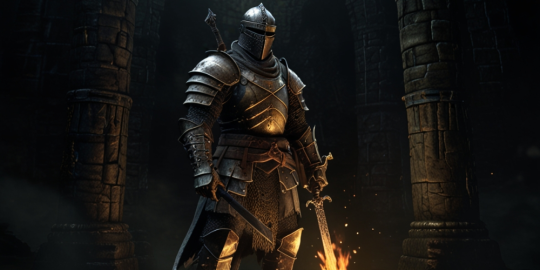
Dark Souls is a game that has left a significant mark on both my gaming experiences and the discussions surrounding video games as a whole. The moment I first set foot in the desolate world of Lordran, I was enveloped in a chilling sense of foreboding and anticipation. Its infamous difficulty was something I had heard about, but the true weight of those encounters did not reveal itself until I faced my first enemy.
The Initial Encounter
As I approached a hollowed figure, thoughts raced through my mind. Would this be the first of many foes that would send me to my demise? The answer would soon reveal itself as I found myself on the ground, shattered by what felt like an insurmountable challenge. The combat mechanics seemed unforgiving; every move mattered. I began to appreciate the need for precision in my actions. Each death became a lesson, each brutal defeat serving as the catalyst for my persistence.
Learning from Defeat
What truly fascinated me was how Dark Souls handled failure. Each time I fell, I learned something new. I discerned enemy patterns, understood attack timings, and began to predict their movements. It became clear: the game thrived on repetition. The thrill of conquering an enemy that had once vanquished me was euphoric. It was a testament to my resilience and adaptation, and the sweet feeling of progress was something I had never quite experienced before.
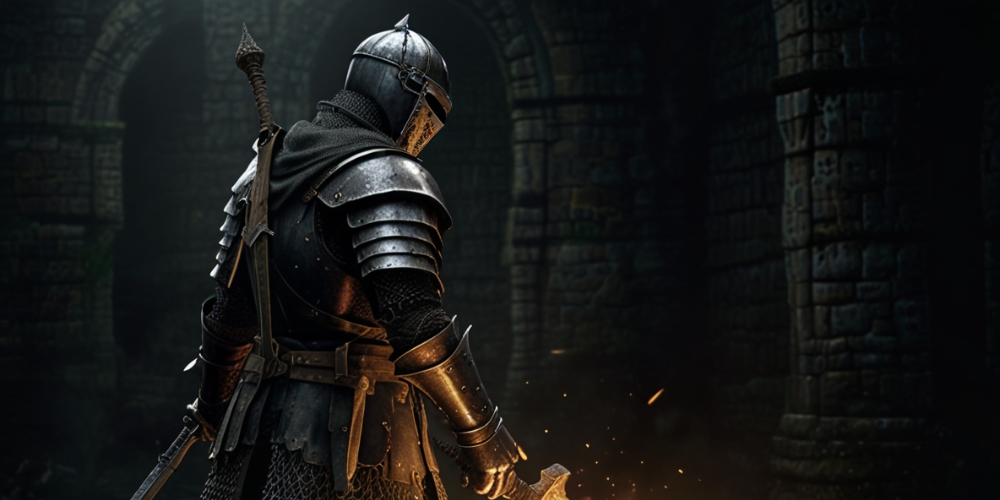
The World of Lordran
Exploring Lordran was akin to stepping into an ancient, forgotten tale. Its interconnected design emphasized exploration, and the beauty of uncovering shortcuts was matched only by the dread awaiting in uncharted territories. Each area appeared daunting at first—with sprawling landscapes marred by despair. But as I became more familiar with my environment, my confidence soared. The difficulties molded my understanding of the world, granting me knowledge that felt hard-earned.
Class Choices and Play Style
Choosing my class influenced how I encountered enemies. I began as a knight, favoring heavy armor and slower, heavier attacks. This decision quickly proved that my playstyle had its strengths but also substantial weaknesses. As I evolved, I experimented with magic and dexterous builds, expanding my tactical options in combat. Each class offered a unique approach to challenges, reinforcing the significance of player individuality within the game's framework.
Community and Shared Struggles
One of the most poignant aspects of my journey through Dark Souls was the sense of community formed around shared experiences. I would often find messages left behind by fellow players—some warning of dangers ahead, others offering encouragement. It was a humbling reminder that each of us was ensnared in our battles, and we could aid each other in overcoming the merciless hurdles laid before us. These interactions gave me a sense of unity in solitude, fostering a bond with other players who shared the struggle.
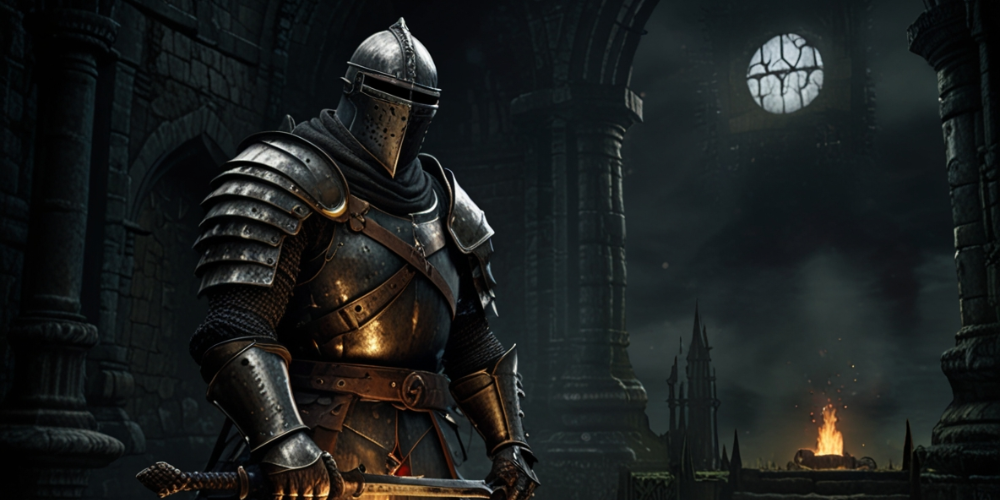
Boss Encounters
Every boss encounter became a monumental test of both skill and persistence. The anticipation I felt as I approached each boss arena was palpable. The heart raced, and with each ominous fog gate I passed through, I braced myself for the epic showdown ahead. These behemoths of despair forced me to refine my tactics constantly. No two fights were alike; adaptability was key. Defeating a boss embodied a euphoric blend of relief and triumph, and it was not merely about winning but the journey to that victory.
Understanding Mortality
Dark Souls reshaped my understanding of mortality in video games. In my many deaths, I learned to embrace the inevitability of failure. Each fall became a stepping stone rather than a setback. This perspective carried over beyond the game itself, instilling a sense of resilience in my daily life. The challenge presented by Dark Souls became more than a mere gaming mechanic; it led me to confront my limitations and push through barriers in other aspects of my existence.
The Role of Patience
Patience became paramount during my hours spent navigating the challenges of Dark Souls. In a world where impatience can lead to rapid failure, I learned that taking my time, observing, and waiting for the right moment to strike could make all the difference. This principle translated into my approach to other games, where haphazard strategies would often lead to failure instead of a thoughtful and mindful engagement.
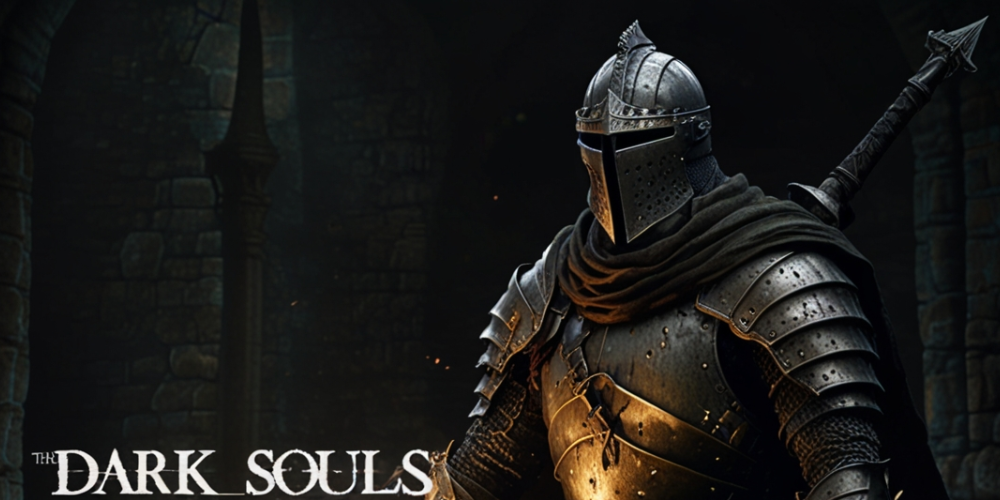
Iconic Weaponry and Character Development
The game’s variety of weapons allowed me to customize my playstyle deeply. Each weapon had its own unique moveset, which resonated with my preferences. I spent hours experimenting and upgrading my arsenal, striving for that perfect combination of speed and power. Character development became a personal journey, mirroring my growth in skill as I chose which attributes to enhance, tailoring my character to my evolving playstyle.
Environmental Storytelling
The meticulous design of the environment narrated a story that unfolded with my every step. Each crumbling tower and desolate battleground spoke of a rich history marked by struggle and ruin. The significance of this environmental storytelling became evident as I began to piece together the lore of the world. It was an intricate layer that made my journey all the more rewarding, pushing me to explore every hidden corner of Lordran.
Endurance of the Player’s Spirit
What stood out clearly was the endurance required to traverse the depths of Dark Souls. Every player experienced the arduous grind that came with the game; it was the shared struggle that unified us. In moments of despair, I discovered that was where the spirit of perseverance thrived. I learned to rise, dust myself off, and push forward, cementing a mentality that I carried outside the boundaries of the game.
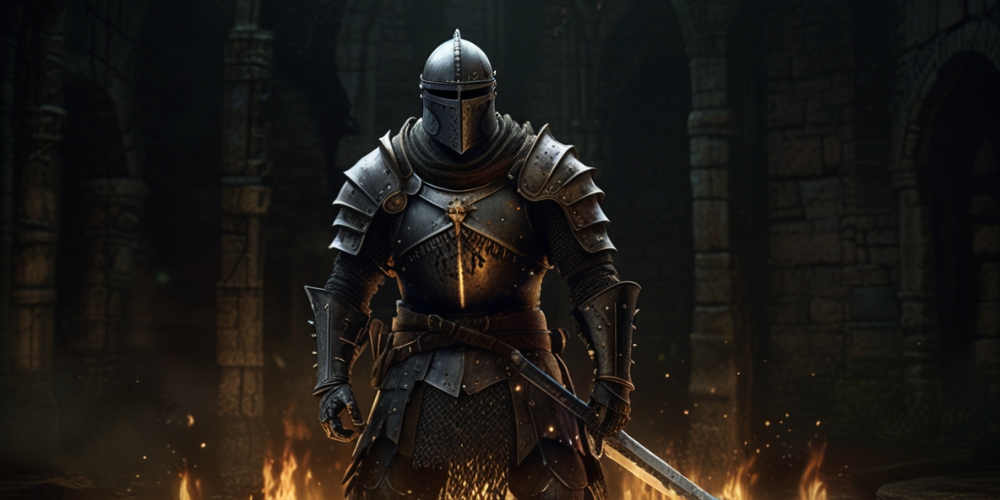
The Allure of Triumph
The allure of triumph in Dark Souls is deeply tied to its difficulty. The characters I formed bonds with—the ones I fought alongside and those I fought against—framed the narrative of my journey. Each victory was layered with the bittersweet taste of past failures, and that duality enriched my overall experience. With each hard-fought victory, the sense of accomplishment became a rich tapestry woven from threads of perseverance and skill.
A Reflection on Gaming Culture
Dark Souls sparked a conversation about the purpose of difficulty in video games. Gone were the days when challenge was seen as an inconvenience; in its place stood a celebration of perseverance. My experience mirrored a seismic shift in the gaming culture, where resilience and determination were no longer just footnotes but celebrated attributes that defined the player experience.
The Legacy of Shadow
As I delved deeper into the lore, I encountered shadows of past heroes whose tales echoed my journey. Parallels formed between my struggles and theirs, mapping out a legacy of bravery and resilience that imbued the game with a profound sense of meaning. It was evident that I was not merely a player in a dark and daunting world but a part of an ongoing saga of tenacity that crossed generations.
The Ever-Expanding Experience
Each playthrough in Dark Souls had the potential to be entirely different. The significance of difficulty shaped how I experienced the world anew each time. New strategies, different classes, and alternative routes breathed a fresh perspective into what I thought I knew. The game became a canvas, and I was the artist, painting my unique masterpiece of struggle and triumph through the exhilarating difficulty.